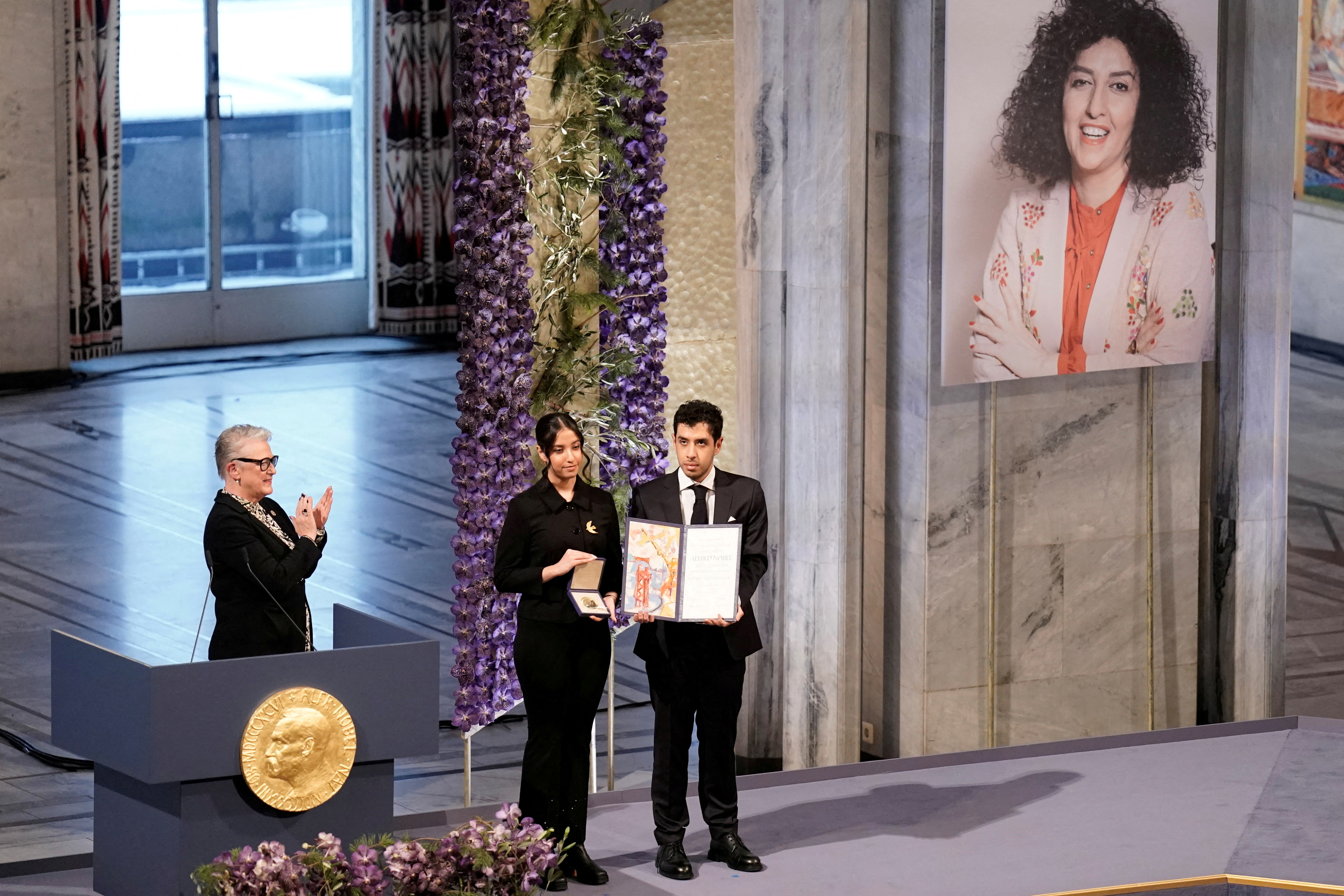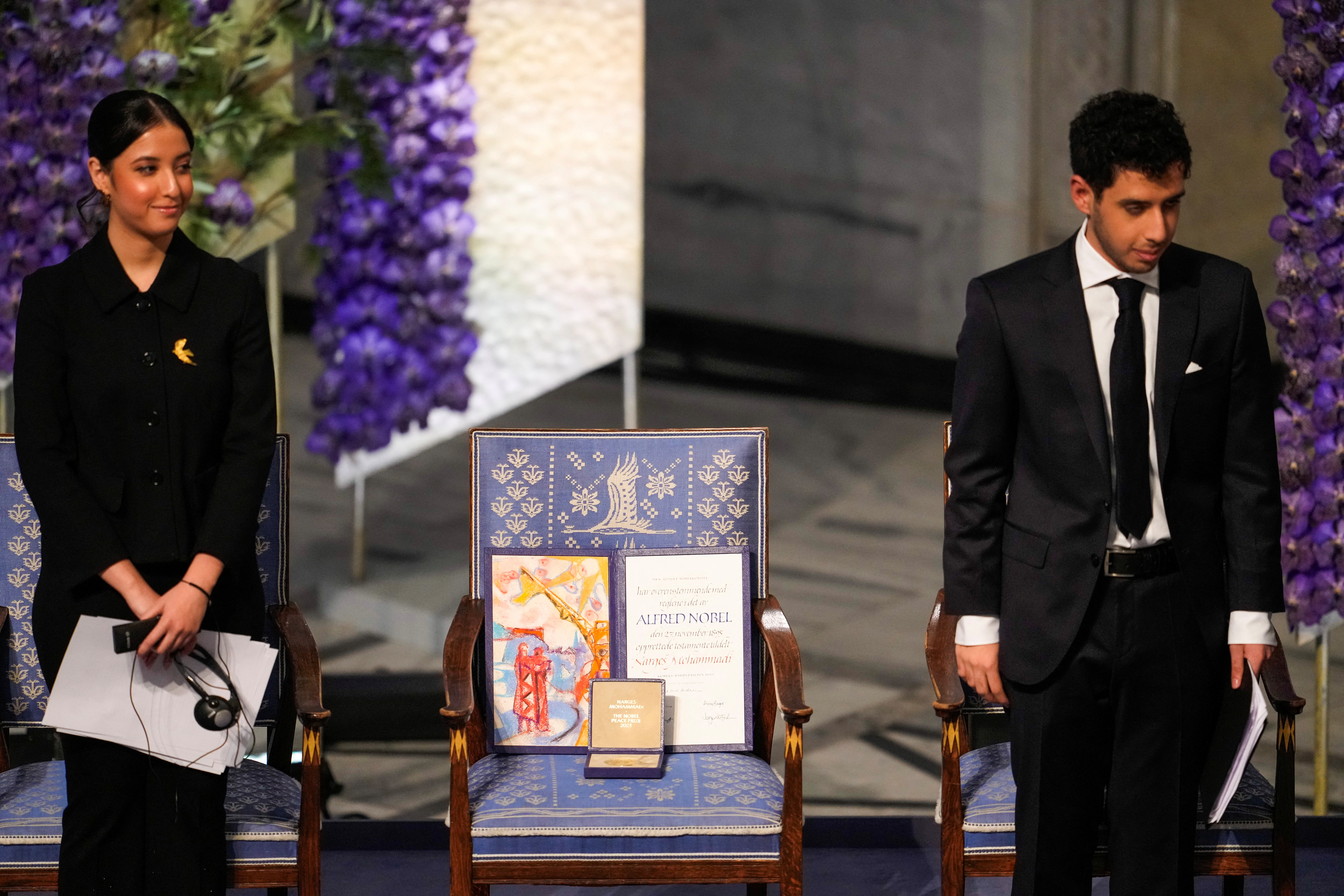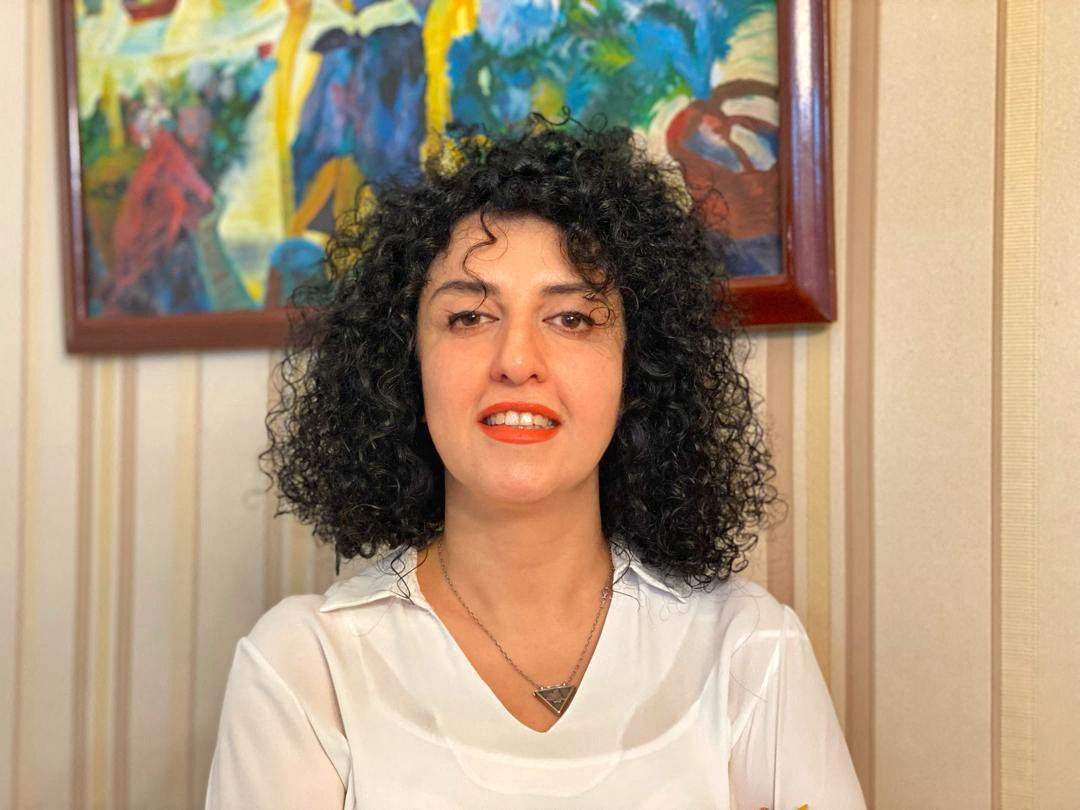
Imprisoned Nobel Peace Prize winner Narges Mohammadi has denounced a “tyrannical and anti-women religious” government in Iran in an acceptance speech read by her children in the Norwegian capital.
Mohammadi, 51, was awarded the 2023 Nobel Peace Prize in October for her decades of activism despite numerous arrests by Iranian authorities and spending years behind bars. She has been held since 2021 in Tehran’s Evin prison.
Mohammadi has campaigned against the compulsory wearing of the hijab and the death penalty in Iran.
Her 17-year-old twins Ali and Kiana, both living in exile in France since 2015, received the award on her behalf on Sunday, delivering a speech she managed to smuggle out of her cell.
“I am a Middle Eastern woman, and come from a region which, despite its rich civilisation, is now trapped amid war, the fire of terrorism and extremism,” she said in her message.
“The Iranian people will dismantle obstruction and despotism through their persistence.”
Mohammadi has been arrested and convicted several times in recent decades, and her twin children have not seen their mother for almost nine years.
“When it comes to seeing her again, personally, I am very pessimistic,” Kiana told journalists at a news conference on Saturday.
“Maybe I will see her in 30 or 40 years, but I think I won’t see her again,” she said via a translator. “But that doesn’t matter because my mother will always live on in my heart and with my family.”
As they received the prize on her behalf at a packed Oslo City Hall, an empty chair and a large photograph of their mother stood at the centre of the stage.

“She [Mohammadi] has asked us to use this particular photograph, which expresses how she wants to lead her life, looking happy in colourful garments, exposing her hair and with a steady gaze towards us,” said Berit Reiss-Andersen, chairwoman of the Norwegian Nobel Committee.
“No punishment has stopped her,” Reiss-Andersen said. “When everything has been denied her, she still mobilises the willpower and courage to make a statement. This year’s [Nobel] Peace Prize recognises the brave women in Iran and around the world who fight for basic human rights and for an end to the discrimination and against segregation of women.”
The prize includes a cheque for 11 million Swedish crowns (about $1m).
‘Woman, life, freedom’
“I am an Iranian woman, a proud and honourable contributor to civilisation, who is currently under the oppression of a despotic religious government,” she said.
Mohammadi is one of the women spearheading the “Woman, Life, Freedom” uprising, which saw months-long protests across Iran triggered by the death of 22-year-old Mahsa Amini.
Amini, an Iranian Kurdish woman, died on September 16, 2022, while being held by Iran’s religious police for allegedly breaching the Islamic Republic’s dress code for women.
The movement seeks the end of Iran’s imposition of a headscarf on all women and an end to the Muslim cleric-led government in Tehran.
“The mandatory hijab imposed by the government is neither a religious obligation or a cultural tradition, but rather a means of maintaining authority and submission throughout society,” Mohammadi said in her acceptance speech, read before the Norwegian royal family and foreign dignitaries.

She said Iran “is fundamentally alienating itself from its people”, denouncing government repression, the lack of an independent judicial system, propaganda and censorship, and corruption.
Amini’s death unleashed years of pent-up anger among Iranians over issues ranging from economic misery and discrimination against ethnic minorities to stricter social and political controls.
Women, including schoolgirls, took off and burned hijabs, revolting against laws obliging women to cover their hair and wear loose-fitting clothes during nationwide protests that were put down with deadly force.
Iran has called the protests Western-led subversion, accusing the Nobel committee of meddling and politicising the issue of human rights.
Mohammadi is currently carrying out a hunger strike in solidarity with the Baha’i community, Iran’s largest religious minority, according to her family.
“On International Human Rights Day, 10th of December, I will also go on a hunger strike in protest against violations of human rights in Iran and in solidarity with the hunger strike of Baha’i women prisoners in Evin Prison,” said a post on Mohammadi’s Instagram account.






